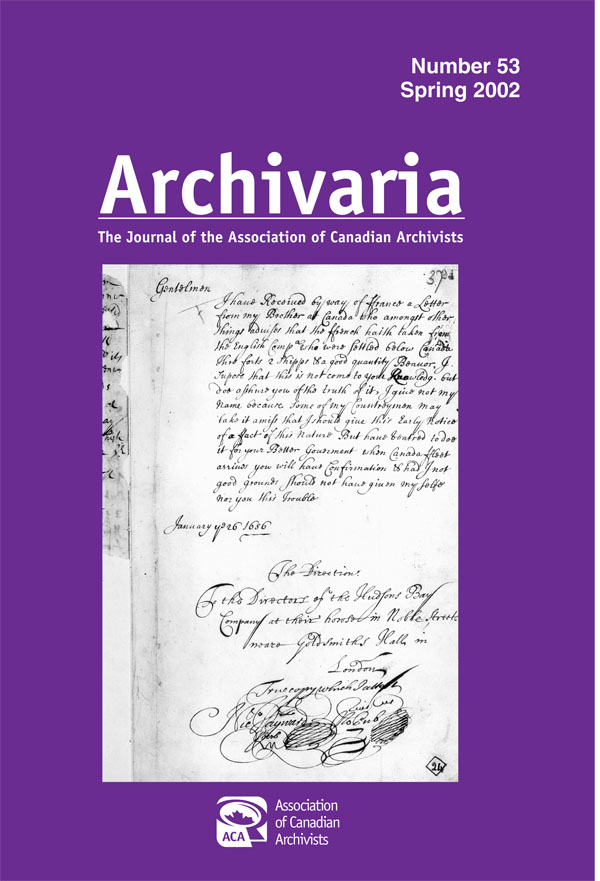Across the Great Divide: Archival Discourse and the (Re)presentations of the Past in Late-Modern Society
Abstract
This article examines the implications for archival discourse in a late-modern world of technoculture featuring the digital re-mediation of documents, texts and images. Issues such as provenance, authority, memory and evidence are affected in a variety of ways once documents and photographs are detached from their original settings and enter cyberspace. Many theorists of the postmodern decry the effects of speed and time distortions associated with the age of the machine. Many also regret the passing of the autonomous, grounded individual characterized by an inherently stable self. This article suggests that there may be advantages to loosening some of the ties that bind us to traditional ways of looking at archival practices in late-modern society.
Authors of manuscripts accepted for publication retain copyright in their work. They are required to sign the Agreement on Authors' Rights and Responsibilities that permits Archivaria to publish and disseminate the work in print and electronically. In the same agreement, authors are required to confirm that "the material submitted for publication in Archivaria, both in its paper and electronic versions, including reproductions of other works (e.g. photographs, maps, etc.) does not infringe upon any existing copyright." Authors of manuscripts accepted for publication retain copyright in their work and are able to publish their articles in institutional repositories or elsewhere as long as the piece is posted after its original appearance on archivaria.ca. Any reproduction within one year following the date of this agreement requires the permission of the General Editor.





